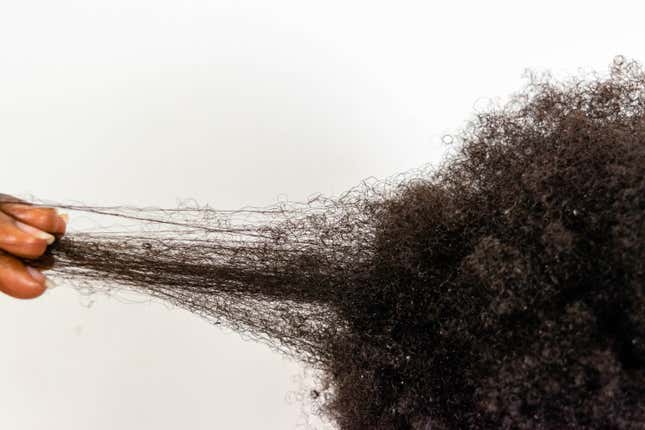
The natural hair movement was born with good intentions. With roots in the Civil Rights Movement, it was meant to show pride in Black culture and reject white standards of beauty. Back then, the afro was everything, and the bigger, the better.
And while it has evolved over time, these days, there’s a growing collective of people who are putting the natural hair movement on blast, calling it out for being a based in BS. In a recent TikTok video, @postdivestedgal took the natural hair movement to task, calling it racist and colorist. The movement, she argues, was supposed to allow women of color to celebrate our hair the way it grows out of our heads. But instead, it has evolved into an often expensive quest to loosen our curls and elongate our locks in a way that is unnatural and sometimes impossible.
All of this got me thinking, isn’t this the same thing we were supposed to be rejecting when we just said no to the creamy crack? And are we still talking about natural hair if we’re trying to get it to do things it doesn’t “naturally” do?And judging by the comments, lots of people agree. One person wrote, “I just ended up hating my hair cause it would not change 😐” Another wrote, “I have gone bald TWICE from trying to make my hair do what it wasn’t meant to do.”
At the center of the controversy is the hair typing system created by celebrity stylist Andre Walker. He assigned numbers to four categories, from straight (1) to coily (4), as a way to identify hair types (and, some argue, to sell his line of natural hair products). But then the categories got even more complicated as subtypes were introduced. Suddenly, women were trying to make sense of the mysterious combination of numbers and letters to find a type that best described them. As someone who lives and breathes hair products, I still haven’t figured out the difference between a 3C and a 4A.
But as @postdivestedgal said in her video, we shouldn’t have to spend a fortune on hair products in the quest to achieve the perfect curl. Hopefully, legislation like the Crown Act will make it easier for more people to reject the stereotypical definition of “good hair” and feel proud to wear their hair – naturally.

